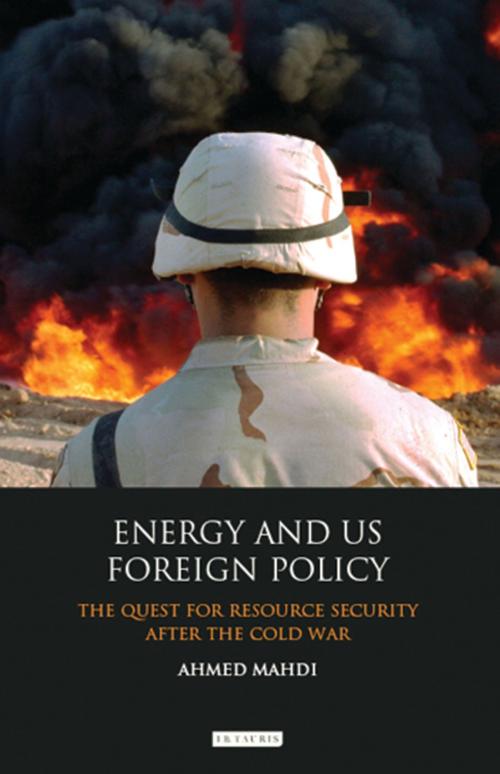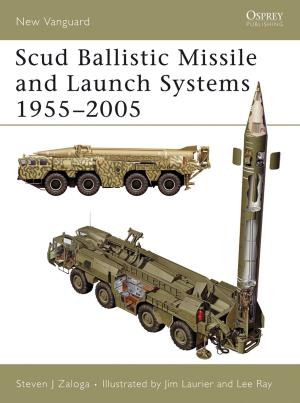Energy and US Foreign Policy
The Quest for Resource Security After the Cold War
Nonfiction, History, Middle East, Social & Cultural Studies, Political Science, Business & Finance| Author: | Ahmed Mahdi | ISBN: | 9780857730688 |
| Publisher: | Bloomsbury Publishing | Publication: | January 30, 2012 |
| Imprint: | I.B. Tauris | Language: | English |
| Author: | Ahmed Mahdi |
| ISBN: | 9780857730688 |
| Publisher: | Bloomsbury Publishing |
| Publication: | January 30, 2012 |
| Imprint: | I.B. Tauris |
| Language: | English |
The US consumes a quarter of the world's oil, two thirds of which must be imported - a proportion which is growing every year. The quest for this precious natural resource can be seen as the defining principle of American diplomacy, an imperative which has shaped and redefined the practice of politics, especially in the wake of 9/11. In Energy and US Foreign Policy, Ahmed Mahdi relates the military expansion of the world's biggest superpower to its quest to gain preferential access to the world's most important commodity.
Charting the links between oil, energy and foreign policy in the actions of three presidents, George
Bush Sr., Bill Clinton and George W. Bush, Mahdi demonstrates how and why oil has played a central role in US relations with the wider world. Focusing on American foreign policy in the Middle East in the post-9/11 age, which has seen US military deployment in the so-called 'war on terror', Energy and US Foreign Policy utilizes a unique combination of policy documents, diplomatic and economic theory. Examining the intersections of energy and foreign policy in Iraq, Mahdi analyses the security concerns of the US in the Middle East, a region from which the US imports vast amounts of oil every year.
Mahdi builds a compelling picture of America trying, and failing, to secure its energy supplies - with enormous and sobering consequences, as Madhi argues that Washington's quest for oil has actually weakened and undermined its global influence and destabilised the world's economic prosperity and security.
By dissecting the failures of the US to secure its own economic and energy interests, and by demonstrating the impact this has had on the rest of the world, especially in the Middle East, Mahdi offers vital analysis for researchers and students of International Relations, Diplomacy, Security and
Energy Studies, and those interested in the future of US foreign policy in the Middle East.
The US consumes a quarter of the world's oil, two thirds of which must be imported - a proportion which is growing every year. The quest for this precious natural resource can be seen as the defining principle of American diplomacy, an imperative which has shaped and redefined the practice of politics, especially in the wake of 9/11. In Energy and US Foreign Policy, Ahmed Mahdi relates the military expansion of the world's biggest superpower to its quest to gain preferential access to the world's most important commodity.
Charting the links between oil, energy and foreign policy in the actions of three presidents, George
Bush Sr., Bill Clinton and George W. Bush, Mahdi demonstrates how and why oil has played a central role in US relations with the wider world. Focusing on American foreign policy in the Middle East in the post-9/11 age, which has seen US military deployment in the so-called 'war on terror', Energy and US Foreign Policy utilizes a unique combination of policy documents, diplomatic and economic theory. Examining the intersections of energy and foreign policy in Iraq, Mahdi analyses the security concerns of the US in the Middle East, a region from which the US imports vast amounts of oil every year.
Mahdi builds a compelling picture of America trying, and failing, to secure its energy supplies - with enormous and sobering consequences, as Madhi argues that Washington's quest for oil has actually weakened and undermined its global influence and destabilised the world's economic prosperity and security.
By dissecting the failures of the US to secure its own economic and energy interests, and by demonstrating the impact this has had on the rest of the world, especially in the Middle East, Mahdi offers vital analysis for researchers and students of International Relations, Diplomacy, Security and
Energy Studies, and those interested in the future of US foreign policy in the Middle East.















